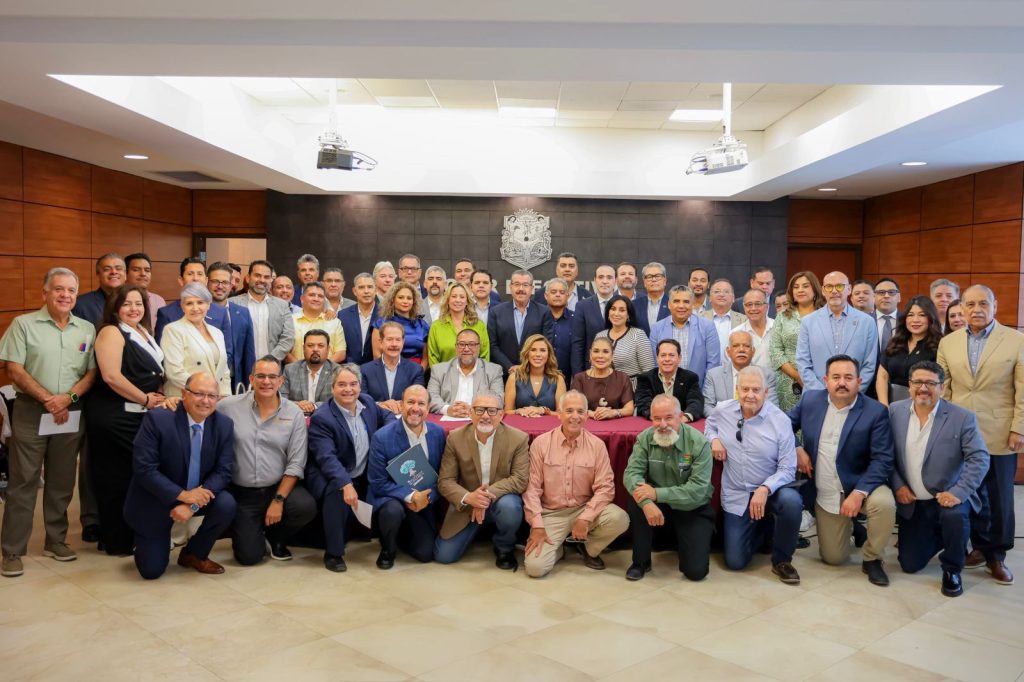Business leaders voice urgent concerns
Baja California Governor Marina del Pilar Ávila Olmeda presided over the plenary session of the State Technical Committee of the Coordinating Business Councils, held Friday, August 1, in Mexicali.
Representatives from the state’s five business councils attended, using the platform to lay out pressing issues.
From Rosarito, Business Coordinating Council President Gustavo Torres Ramírez cited serious problems affecting local business, tourism, and the broader economy: alleged abuses by state police, the unchecked proliferation of unlicensed street vendors in tourist areas and on the beach, extortion fees demanded from businesses, and marine pollution.
“We raised problems such as extortion by the state police, as well as the excessive number of street vendors in the tourist zone and on the beach, where visitors are often forced to pay to use beach furniture,” Torres said. “There’s also the issue of ‘protection’ fees in the Popotla Boulevard, Primo Tapia, and neighborhood areas, which push some businesses to close early.”
Security in Tijuana under scrutiny
Tijuana’s Business Coordinating Council highlighted the city’s deepening public security crisis, particularly homicides that place it as the second most violent city in Mexico, behind only Guanajuato.
Torres described the session as productive, noting that state officials made commitments to follow up on the concerns raised. The governor also announced a separate meeting with Rosarito’s business council to provide updates on the specific issues affecting each municipality.
Governor touts record infrastructure investment
Ávila Olmeda emphasized that in her three and a half years in office, her administration has invested more in infrastructure than the previous three state governments combined.
“Manufacturing production grew 49.7 percent over the past year, and in the same period, Baja California attracted $857 million in foreign direct investment, ranking fourth nationwide in capital inflows,” she said.
She pointed to flagship infrastructure projects including the Elevated Viaduct, the San Antonio de los Buenos wastewater treatment plant, the Otay II border crossing, and the Rosarito desalination plant — expected to be one of the largest in Latin America.
Energy challenge, not shortage
Responding to business sector concerns, the governor clarified that Baja California is not facing an energy shortage, but rather a transmission challenge. This, she said, is being addressed with federal government support, with ten working meetings held to date.
Four pillars for long-term growth
State Economy Secretary Kurt Honold Morales identified energy, water, infrastructure, and talent as the four strategic pillars for long-term development, offering stability for future investments.
State Finance Secretary Marco Moreno Mexía underscored that public investment has been a key driver of economic growth and job creation.
“By the end of this administration, we will have reached a total investment close to 100 billion pesos — a historic figure,” he said.

